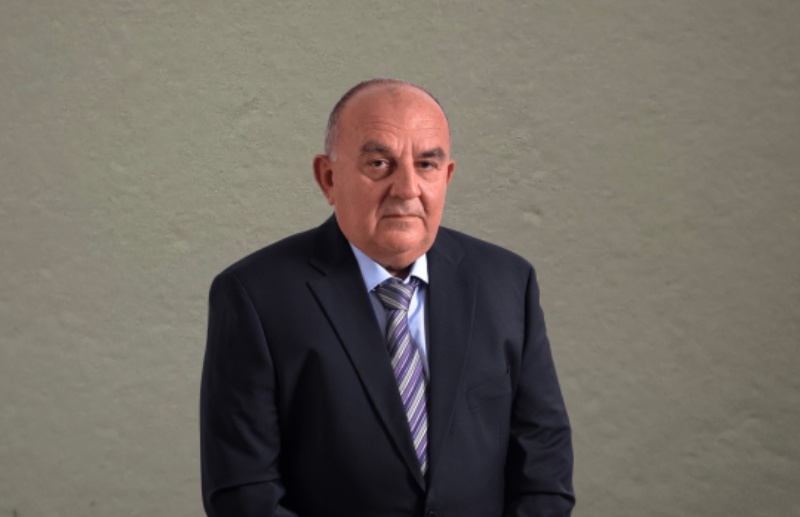TREBINJE – The Republic Commission for Determining Conflict of Interest in the Authorities of Republika Srpska issued a decision stating that Ranko Bošnjak is not in a conflict of interest, despite being both a city council member and the director of the company “Monting energetika”, which conducted business with the City of Trebinje valued at more than 30,000 marks.

Direkt uncovered how council member Ranko Bošnjak voted for the Decision on the financing of floodlights at the “Police” stadium in Trebinje, and shortly thereafter, his company became part of the winning consortium in the tender for the installation of floodlights. We extensively covered this in the article “Ranko Bošnjak – both council member and contractor”.
Following our story, Transparency International Bosnia and Herzegovina (TI BiH) reported Council Member Bošnjak to the Republic Commission for Determining Conflict of Interest in the Authorities of Republika Srpska in July of last year. The basis for the report was that the Law on Conflict of Interest Prevention in Republika Srpska clearly states that elected representatives cannot be members of the management or directors of companies doing
business with the authorities of Republika Srpska or local self-government units during their tenure if the value of the contract exceeds 30,000 KM.
In the case of council member Ranko Bošnjak, the value of the contract exceeded this amount, and he was the director of the company “Monting energetika”.
The Commission initiated the procedure at the beginning of August last year and requested clarification from Council Member Bošnjak, which arrived only on November 1.
After the report to the Commission, Ranko Bošnjak handed over the directorial position in “Monting energetika” to his son Bojan, while he remained in the position of deputy director.
This action resolved the unlawful situation that was the cause for the report to the Commission, although it did not change the fact that, at the time of our article's publication and TI BiH report, the situation existed.
Bošnjak's lawyer, as evident in the Commission's decision, practically acknowledges the existence of an unlawful situation that led to Bošnjak's report. He emphasises that this situation was subsequently rectified.
“The Commission received a statement through attorney Dragan Škuletić, stating that, in order to rectify the unlawful situation that prompted the mentioned initiative, the company made a change in the director's position, for which appropriate evidence was provided”, as stated in the Commission's decision.
The Commission acknowledges that there was a conflict of interest and emphasises that Bošnjak is no longer in conflict.
“Considering that, due to the removal of the unlawful situation, Mr. Bošnjak is no longer in the position of the company's director, he is consequently no longer in a conflict of interest”, as stated in the decision signed by Obrenka Slijepčević.
Problematic Interpretation of the Law, Conflict Definitely Existed
Transparency International Bosnia and Herzegovina is not surprised by the Commission's decision, as they state that this is just one in a series of decisions by the Commission that has no basis in the law.
Srđan Traljić from this organisation warns that, alongside a flawed law, the application and interpretation of the existing law by the Commission are very problematic, leading to complete absurdity.
They have announced an appeal against this decision by the Commission.
“The Commission had to determine whether Mr. Bošnjak was in a conflict of interest at the time of filing our complaint. We submitted the complaint sometime in July of last year, and he only informed the Commission in November that he had left the position of the director of his own company. So, the conflict of interest definitely existed at the time we reported the case. We are waiting for the Commission's decision on the appeals”, stated Traljić for Direkt.
He pointed out the shortcomings of the existing law regulating the area of conflicts of interest in Republika Srpska, stating that it is necessary for entity and state laws to be aligned.
“Here, of course, there are shortcomings in the law that we often point out because the law states that a public official cannot be a director, a member of the management board, or a supervisory board of a private company doing business with the state. The owner of the company is not mentioned in the law. The Commission did not delve into determining how this company is organised, who is a member of the management and supervisory boards, and that's a separate story”, emphasises Traljić.
He adds that in the case of the law in Republika Srpska, it is not problematic for the son of a public official to be the director of a company doing business with the state, while at the state level, this is a problem.
“When we talk about the shortcomings of the law, this prohibition for public officials to lead private companies doing business with the public sector, at the state level, also applies to the family members of these officials. In the entity law, this is not the case, so it is not
forbidden for the son of a public official to be the director of a company doing business with the state. At the state level, it is, and we have filed two significant complaints against Nermin Nikšić and Milorad Dodik, and we are waiting for decisions. Therefore, we believe that all these laws should be harmonised because it is an important mechanism for preventing corruption”, concluded Traljić for Direkt.
City Council member Ranko Bošnjak refused to speak to “Direkt” and, in a phone call, only told us not to press him anymore.
In any case, the purchase and installation of reflectors at the stadium of the Football Club “Leotar” is a project for which the city allocated about 1.6 million marks without VAT. This procurement was realised only on the third attempt, with changes in the types of procedures and prices for the reflectors, which were criticised by the local opposition throughout the process. Direkt portal


